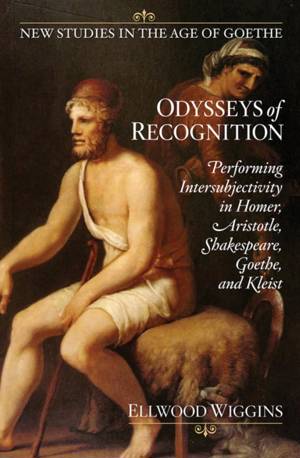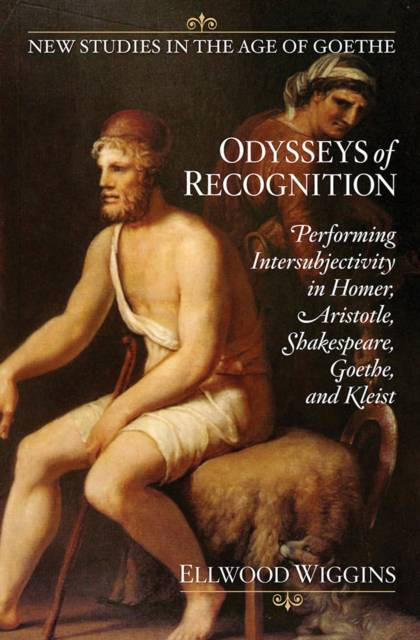
Onze Vivlio e-readers ondervinden momenteel synchronisatieproblemen. We doen er alles aan om dit zo snel mogelijk op te lossen. Onze excuses voor het ongemak!
- Afhalen na 1 uur in een winkel met voorraad
- Gratis thuislevering in België vanaf € 30
- Ruim aanbod met 7 miljoen producten
Onze Vivlio e-readers ondervinden momenteel synchronisatieproblemen. We doen er alles aan om dit zo snel mogelijk op te lossen. Onze excuses voor het ongemak!
- Afhalen na 1 uur in een winkel met voorraad
- Gratis thuislevering in België vanaf € 30
- Ruim aanbod met 7 miljoen producten
Zoeken
Odysseys of Recognition
Performing Intersubjectivity in Homer, Aristotle, Shakespeare, Goethe, and Kleist
Ellwood Wiggins
€ 39,45
+ 78 punten
Omschrijving
Literary recognition is a technical term for a climactic plot device. Odysseys of Recognition claims that interpersonal recognition is constituted by performance, and brings performance theory into dialogue with poetics, politics, and philosophy. By observing Odysseus figures from Homer to Kleist, Ellwood Wiggins offers an alternative to conventional intellectual histories that situate the invention of the interior self in modernity. Through strategic readings of Aristotle, this elegantly written, innovative study recovers an understanding of interpersonal recognition that has become strange and counterintuitive. Penelope in Homer's Odyssey offers a model for agency in ethical knowledge that has a lot to teach us today. Early modern and eighteenth-century characters, meanwhile, discover themselves not deep within an impenetrable self, but in the interpersonal space between people in the world. Recognition, Wiggins contends, is the moment in which epistemology and ethics coincide: in which what we know becomes manifest in what we do. Published by Bucknell University Press. Distributed worldwide by Rutgers University Press.
Specificaties
Betrokkenen
- Auteur(s):
- Uitgeverij:
Inhoud
- Aantal bladzijden:
- 342
- Taal:
- Engels
- Reeks:
Eigenschappen
- Productcode (EAN):
- 9781684480371
- Verschijningsdatum:
- 15/02/2019
- Uitvoering:
- Paperback
- Formaat:
- Trade paperback (VS)
- Afmetingen:
- 152 mm x 226 mm
- Gewicht:
- 521 g

Alleen bij Standaard Boekhandel
+ 78 punten op je klantenkaart van Standaard Boekhandel
Beoordelingen
We publiceren alleen reviews die voldoen aan de voorwaarden voor reviews. Bekijk onze voorwaarden voor reviews.











